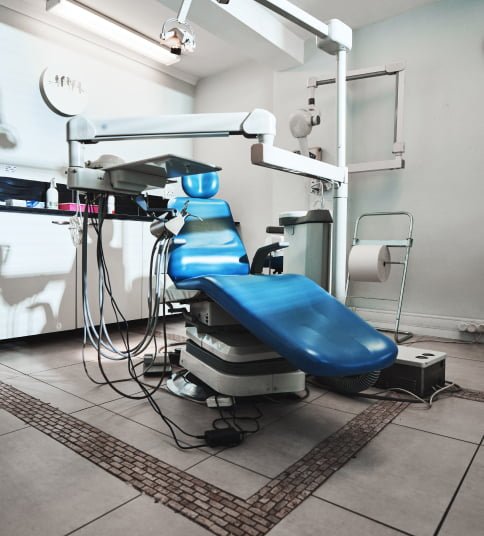- 7W82+HWR, Imambargah road, Bhalwal, Sargodha, Punjab 40410
Sat - Thu: 09:00am - 05:00pm
info@turabidentistry.com
A single tooth implant can replace an extracted or missing tooth. Single tooth implants are a preferable permanent option over bridges because you can maintain the integrity and health of neighbouring teeth.
Your dentist surgically implants or places a small biocompatible titanium screw into your jawbone. The bone and titanium fuse together, creating a very strong platform to attach a prosthetic tooth. The titanium screw acts much like your natural root and will hold the implant in place.
The implant procedure can be completed in as little as an hour. If you do not have enough bone in your jaw, a bone graft may be necessary. Once the implant is set into the jawbone, you must allow time for the implant and the bone to fuse to create a strong, immovable root for the new tooth.
If you need a bone graft, you will need up to 5 months before the implant procedure can take place. If the implant is being placed in the upper jaw, the waiting time between surgeries will be longer than teeth replacements in the lower jaw. The entire process takes about 3 visits. During the second visit, an incision is made in the gums to expose the implant, and a collar is placed on the head of the implant. An abutment is screwed into the collar, and a temporary crown is placed onto the abutment. This will take about 4-6 weeks to heal.
Finally, within 5-12 months after the initial surgery, depending on grafting needs and tooth location, the final crown will be affixed to your implant.
Your dentist will examine and take moulds of your mouth, along with X-rays and possibly a CT scan. They will then design the perfect smile to replace your teeth. If you have low or atrophied bone density, you may need a bone graft first, which will require extra time to heal.
Once your jawbone is ready, your dentist will implant titanium screws into your jaw, which will affix and support the dentures. Once this heals, you will return for your dentist to create tiny openings in your gums over the screws and attach an abutment and temporary dentures. Once the healing process around the abutments is complete, you’ll return to have your permanent implant-retained dentures affixed.
Depending on your dental health needs, you can have your dental implant procedure under local or general anaesthesia. The process involves three phases:
Partial denture implants offer stability for replacing some missing teeth.
Complete denture implants provide a secure solution for replacing all teeth.
Cosmetic denture implants enhance both function and aesthetics.
Implant dentures offer a permanent, stable tooth replacement solution.
Ready to explore the possibilities of dental implants? Contact Turabi Dentistry to schedule a consultation. Our experienced team will guide you through the process, answer your questions, and help you achieve a complete and confident smile.

0486645172
Info@turabidentistry.com
Saturday
Sunday
Monday
Tuesday
Wednesday
Thursday
Almost every patient is suitable for an implant if they have a healthy mouth and don’t chew or smoke tobacco. Use of tobacco products has been linked to an increased incidence of implant failure.
If you have a chronic illness that impedes healing progress, you may not be a candidate right now, or your dentist may want to take additional steps before beginning the implant process. If you need a bone graft to replace atrophies or low jawbone density, you may still be a candidate; however, the entire process will take additional time.
Implants require the same care as any other tooth requires. There are no special toothpaste to use or precautions to take. With proper oral hygiene habits, your dental implant can last you a lifetime.